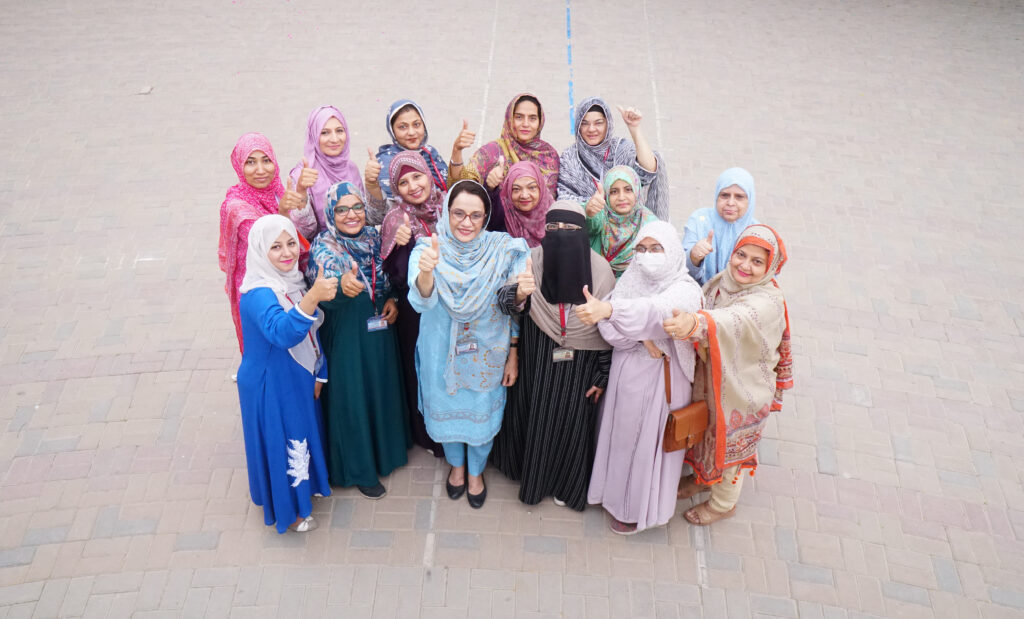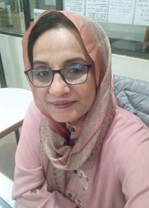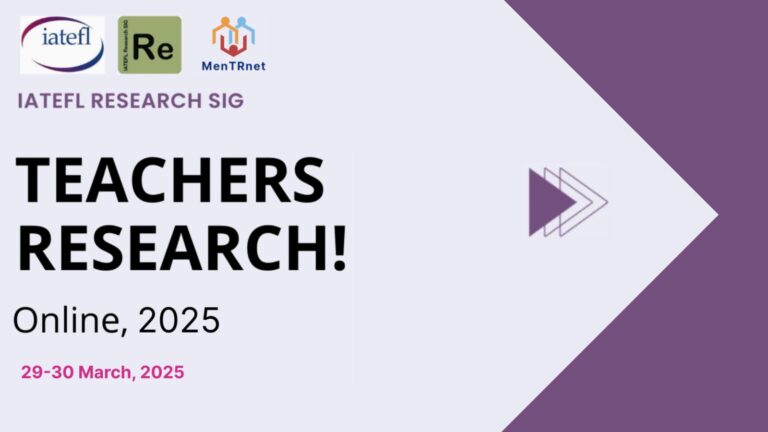
This month we have another blog post based on one of the events from the International Festival of Mentoring Teacher Research, which focussed on mentoring teachers in Exploratory Action Research for school improvement. In this post, two of the presenters, Sirin Soyoz and Ghazala Sajjad, report on their involvement with the British Council’s Action Research mentoring initiatives at Partner Schools. In the first part, Sirin reflects on her experience as a lead mentor, and in the second part, Ghazala gives her perspective as a mentor and school leader in Pakistan. You can view the recording of their presentation in the International Festival here. See also this follow-up interview with participants in the programme, with Phil Dexter, for the August 2025 issue of the Pilgrims Teacher Training Journal. The collection of teachers’ reports which arose from the initiative can now be obtained via this link.
Reflections on school improvement through mentoring EAR – Sirin Soyoz
In this blog post, I would like to provide an overview of my experience as a lead mentor for the British Council’s Action Research initiatives at Partner Schools. Here, I reflect on how mentoring and establishing a research culture can contribute to school improvement.
I had the privilege of delivering a presentation in the International Festival of Mentoring Teacher Research on 19 October 2024. The topic was ‘School Improvement Through Mentoring Exploratory Action Research’ and I co-presented with my colleague Ghazala Sajjad, a school leader at Generation’s School in Pakistan, and Fareeha Bashir, who is a facilitator in the research and development department in the same school.
My part focused on reflecting on my journey as a lead mentor for the Action Research initiatives at British Council’s Partner Schools – a role that enabled me to explore the potential of delivering an action research course to a large group and to observe how it helps create a research culture within a school context as a collaborative CPD (Continuing Professional Development) activity. I also had the opportunity to experiment with using Artificial Intelligence (AI) to support teachers in their action research process.
The British Council launched its Action Research Grants for Partner Schools in 2023-2024. This programme brought together 12 school leaders from around the world to engage in action research aimed at improving educational practices within their schools. As a lead mentor, I supported the school leaders through various stages of the Exploratory Action Research (EAR) process with my colleague Kathleen O’Hare. Since then, many of these school leaders have taken the initial steps in mentoring teacher research and contributing to the development of a research culture within their own schools and across Partner Schools.
In addition to the Action Research (AR) Grants, we also launched a parallel course for the British Council’s Partner Schools in 2023, titled Action Research Foundations. This course targeted Partner School members who applied for the AR Grants but were not selected, as well as those interested in building their research skills within the Partner Schools. The idea was simple: since we could only accommodate 12 researchers in the AR Grants programme, we needed an alternative way to involve more teachers in teacher research. It was a simplified version of the AR Grants.
We used our Learning Management System (LMS), supported teachers through four live sessions on different aspects of EAR, guided them in reading the Handbook for Exploratory Action Research, and encouraged them to share their research outputs with one another in the discussion forums. The LMS was used as a central platform for organising activities, providing access to resources, discussions, and live sessions, ensuring participants could easily follow the course structure. Finally, participants submitted their completed EAR findings using the submission form at the end of the course.
This course generated overwhelming interest, with over 300 educators from more than 20 countries enrolling. Over 80 participants continued their action research projects, but this presented a major challenge for me as their mentor in providing effective and timely feedback to the participants in the forum. However, with challenges come opportunities for innovation, and this is where AI came into play. Through this experience, I had the opportunity to explore and introduce generative AI as a support tool to the researchers. After that, I started exploring the use of AI in mentoring teacher research in a more systematic way, as I noticed how it facilitated this process. We will be reflecting on this journey with Prof. Richard Smith in our new blog space: https://action-research.ai.
I have also witnessed how a community of practice in a school environment helps address the challenges of the EAR process. From Ghazala and Fareeha, I have learned the following:
- Effective school-based mentoring significantly improves teachers’ confidence and research skills;
- Establishing a culture of research in schools requires ongoing mentoring support and commitment;
- The integration of technology, including AI tools, can streamline the research process, making it more accessible and manageable for teachers with heavy workloads.
The teacher researchers not only developed their skills but also presented their findings at educational conferences. We are confident they will continue exploring and contributing to research-based practices.
Leading and Mentoring EAR – Ghazala Sajjad
In October 2023, our school participated in the British Council Exploratory Action Research (EAR) Foundation course. As a school leader, I co-mentored 19 staff members alongside my colleague Fareeha, focusing on empowering them to lead classroom changes through research.
Our mentoring approach was collaborative and reflective. By maintaining open communication through WhatsApp groups and regular learning walks (informal, collaborative and non-evaluative classroom visits to observe and discuss teaching practices), we ensured consistent feedback and created spaces for dialogue. Scaffolded support was a key element of our approach. For example, when a teacher struggled to refine her research title, reflective questions like “What’s not working?” helped her explore and focus her research area.
We also integrated technology, sharing resources via WhatsApp and modeling AI tools to assist participants, particularly those less confident in writing. This approach saved time and made research more accessible.
Our support had a significant impact, with all 19 participants successfully completing their projects, achieving a 100% submission rate. The structured process led by Sirin, combined with our mentoring, demystified research and boosted teachers’ confidence in conducting Exploratory Action Research and implementing classroom innovations. Peer collaboration also strengthened, evolving into a community of practice where ideas and support are continuously shared.
The successful participants of the Foundation course at Generation’s School are shown in the two photos below.

Key lessons from this journey include the importance of trust, scaffolded support, leveraging technology, and collaborative leadership. By promoting a respectful environment, we encouraged openness, and by gradually reducing direct guidance, we helped participants build independence.
The EAR journey has been transformative, highlighting how mentoring can inspire teachers to become researchers, translating theory into impactful practice. I believe this culture of inquiry and lifelong learning will pave the way for meaningful educational change.





This project is need of time. This supports for school development and improves classroom teaching.
Hi there Manjusha, I was involved in setting up the first EAR cohort of the Champion Teachers project in Chile with Richard Smith and Paula Rebolledo while I was with the British Council there in 2013. I am just so thrilled that this life changing approach to mentoring and teacher development has taken off all over the globe!! Really couldn’t be prouder. Best wishes
Yes, it was Tom’s idea to set up the Champion Teachers programme in Chile 12 years ago – it’s where Exploratory Action Research was first developed and it’s gone from strength to strength. Thanks Tom – really something to be proud of!
Here’s a video interview with you that very first time: https://www.facebook.com/watch/?v=608683645828475
And a record I kept of the early years of Champion Teachers and Exploratory Action Research!: https://championteachers.weebly.com/